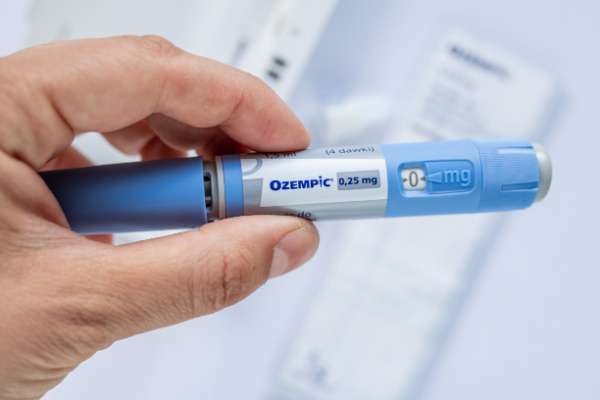A personal injury law firm has filed a lawsuit against Novo Nordisk and Eli Lilly and Co., the manufacturers of Ozempic and Mounjaro, over claims that the diabetes drugs, which are popular for aiding weight loss, can cause gastroparesis, a paralysis of the stomach.
As CBS News reports, Paul Pennock and Jonathan Sedgh, the attorneys heading up the lawsuit from the firm Morgan & Morgan, announced the filing at a news conference, saying the basis of the suit is “a failure to warn.”
“It is our opinion that these drugs are causing these problems. We think that the evidence is sufficient for us to be able to prove it or we would not have filed the case, and we intend to file many more in the coming days and weeks,” Pennock said during the Zoom conference, noting the first case filed involves a 44-year-old woman from Louisiana who has taken both drugs, Ozempic first and then Mounjaro, at the discretion of her doctor.
“Her problems have been so severe that she’s been to the emergency room multiple times, including last weekend. She’s actually even thrown up so violently that she’s lost teeth,” he said of the plaintiff, who is seeking financial compensation, but has not yet been officially diagnosed with gastroparesis. Pennock says his firm is investigating 400 other inquiries from clients across 45 states.
Tirzepatide, sold under the brand name Mounjaro, and semaglutide, sold under the brand names Ozempic and Wegovy, are administered once a week by shot. Mounjaro is known as a GIP and GLP-1 receptor agonist, while Ozempic and Wegovy are known as GLP-1 receptor agonists.
What is gastroparesis?
Also called delayed gastric emptying, gastroparesis is a disorder that “slows or stops the movement of food from your stomach to your small intestine, even though there is no blockage in the stomach or intestines,” according to the National Institutes of Health (NIH).
Diabetes itself is most common known cause of gastroparesis, the NIH says. Diabetic gastroparesis most commonly occurs in patients with poorly controlled or long-standing (meaning 5 years or longer) diabetes, according to the Food and Drug Administration.
“It is unclear whether the GLP-1 agonist medications used in patients with type 2 diabetes contribute to the occurrence of diabetic gastroparesis,” the FDA said Thursday in a statement to CBS News. “If newly identified safety signals are identified, the FDA will determine what actions are appropriate after a thorough review of the body of evidence.”
In a statement to CBS News, Novo Nordisk said gastrointestinal, or GI, events are “well-known side effects of the GLP-1 class.” The statement continued, “For semaglutide, the majority of GI side effects are mild to moderate in severity and of short duration. GLP-1’s are known to cause a delay in gastric emptying, as noted in the label of each of our GLP-1 RA medications. Symptoms of delayed gastric emptying, nausea and vomiting are listed as side effects.”
Eli Lilly and Co. said, “Patient safety is Lilly’s top priority, and we actively engage in monitoring and reporting safety information for all our medicines.” Mounjaro and Ozempic are FDA-approved diabetes medications, while Wegovy is FDA-approved specifically for weight loss.
These drugs were originally developed to treat patients with Type 2 diabetes as they produce insulin and lower blood sugar. They also release a hormone that slows down digestion and keeps food in a patient’s stomach longer. This process suppresses hunger and leads to weight loss — but there can be side effects, and doctors warn that long-term impacts remain unknown.
—
Photo Credit: natalia gh / Shutterstock.com
